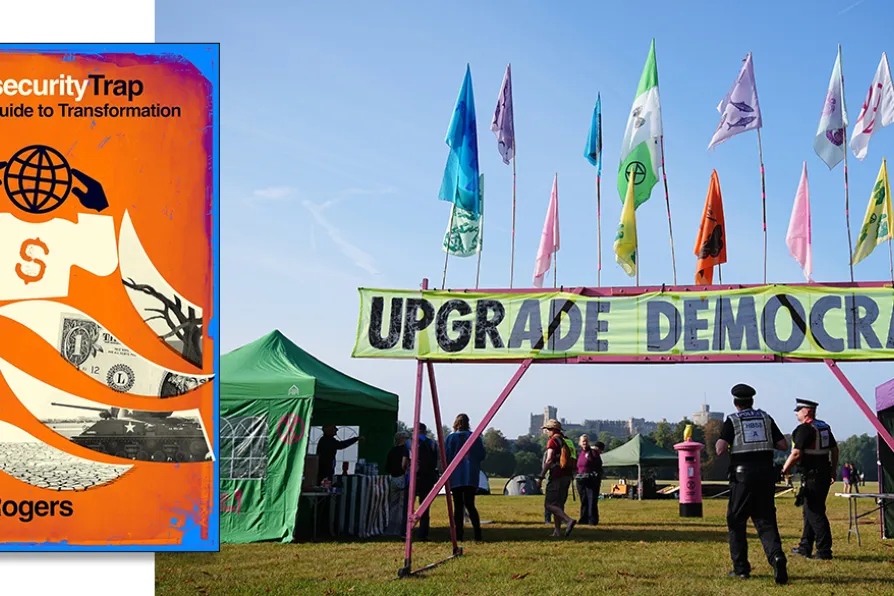JOHN GREEN, MARIA DUARTE and ANGUS REID review Fukushima: A Nuclear Nightmare, Man on the Run, If I Had Legs I’d Kick You, and Cold Storage

 Extinction Rebellion stage a mass occupation in Windsor Great Park. Activists are calling for the Government to create and be led by a citizens' assembly on climate and ecological justice, August 30, 2024.
Extinction Rebellion stage a mass occupation in Windsor Great Park. Activists are calling for the Government to create and be led by a citizens' assembly on climate and ecological justice, August 30, 2024.
The Insecurity Trap – A Short Guide to Transformation
By Paul Rogers with Judith Large, Hawthorn Press, £11.99
IN this slim volume, Paul Rogers offers a succinct summary of the chief crises threatening our world today: a rapidly approaching climate catastrophe, a severe decline in UN legitimacy and global multilateral co-operation, with an increasing resort to armed response rather than diplomacy. Together, this is leading to widespread social breakdown and despair.
The author argues, though, that to give way to despair in the face of such seemingly intractable problems would be to admit defeat. There are, he argues, effective ways in which we as individuals can respond and fight to change the trajectory of our world.

From summit to summit, imperialist companies and governments cut, delay or water down their commitments, warn the Communist Parties of Britain, France, Portugal and Spain and the Workers Party of Belgium in a joint statement on Cop30

JENNY CLEGG reports from a Chinese peace conference bringing together defence ministers, US think tanks and global South leaders, where speakers warned that the erosion of multilateralism risks regional hotspots exploding into wider war

HENRY BELL takes issue with the assertion that basic income is a remedy for poverty when it doesn’t address the inbuilt inequality of capitalism










